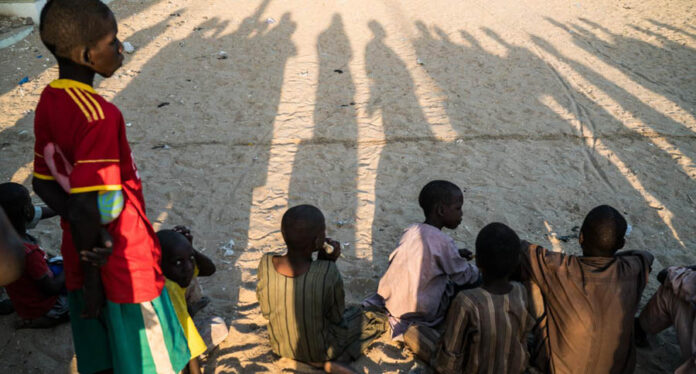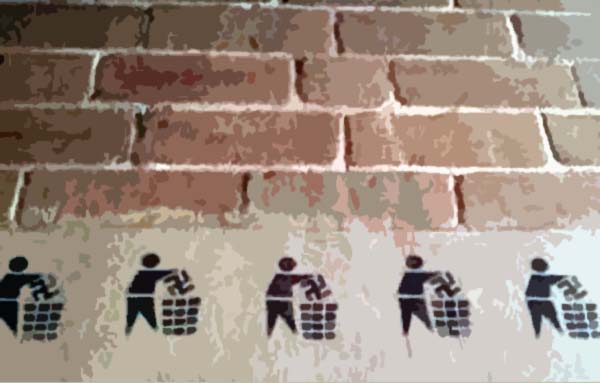Salako Kayode
Under capitalism in Nigeria, children face unending crises due to capitalist barbarism. It is time to struggle to defend children’s rights and strive for a society more fit for children.
Nigerian children have been suffering as a result of neoliberal policies, and unfortunately, there seems to be no end in sight. Capitalist governments, driven by the ruling class’ interests, are not genuinely committed to resolving the numerous crises that affect children. In the event of Children’s Day, capitalist politicians and their associates will organize different marches across the country, making empty promises, while the same crises will drag on, year after year. Many Non-Governmental Organizations (NGOs) will organize events and highlight the myriad problems that young people face, but they fail to take concrete action to address the root causes of these problems. Nevertheless, Children’s Day serves as a reminder that all minors and children have the right to health, education, and security.
Education, Health, Security
The Nigerian government is responsible for not tackling the numerous crises children are facing, which are similar to the crises faced by adults. The effects of capitalism can be felt everywhere, and the high level of inequality in Nigerian society makes everyone feel the pain, especially children from working and low-income families. Growing up, they bear the scars of malnourishment, illnesses like polio and meningitis, poor housing conditions, poverty, abuse, rape, lack of access to education, healthcare, and other basic needs, which leave an indelible mark on their lives.
The number of out-of-school children in Nigeria today is more than 10 million, the highest rate in the world according to the Vanguard (January 31, 2023). Even those children fortunate enough to be in classrooms often come with ragged or torn polythene school bags, and their classrooms are dilapidated.
Furthermore, healthcare for children is not receiving adequate attention. For example, on July 8, 2021, a bill to provide free healthcare for children aged 0-18 was sponsored by Bello Kaoje (APC, Kebbi). However, even this basic bill faced opposition from other members of the house and was subsequently stopped. If passed, the bill would have mandated government hospitals to provide free medical services for children, including diagnoses, treatment, and prevention of illnesses, both physical and mental. The infant mortality rate, under 5, per 1,000 live births in Nigeria was 111 in 2021, the third worst worldwide after Niger and Somalia (World Bank data).
According to a report by the United Nations Children’s Fund (UNICEF) titled “Situation of Women and Children in Nigeria,”
“Nigeria’s 40 million women of childbearing age (between 15 and 49 years of age) suffer a disproportionally high level of health issues surrounding birth. While the country represents 2.4 per cent of the world’s population, it currently contributes 10 per cent of global deaths for pregnant mothers. Latest figures show a maternal mortality rate of 576 per 100,000 live births, the fourth highest on Earth.”
These figures are undeniably enraging. The federal government must immediately work towards extending healthcare services to underserved areas and providing sufficient materials and equipment in all healthcare centers. Capitalism and neoliberalism are responsible for this avoidable death toll.
Children are the most affected by the out-of-control security situation in the country. According to the UN, since December 2020, a total of 11,536 schools have been closed due to abductions and security issues. This is in addition to the ongoing uncertainty surrounding the remaining girls kidnapped in April 2014 in Chibok, Borno State, and Leah Sharibu, who was kidnapped in 2018 in Dapchi, Yobe State. During his 2015 election campaign, President Buhari pledged to secure the release of the Chibok girls, but only a few have been released thus far.
After 707 days, the two remaining kidnapped students of the Federal Government College, Birnin Yauri, have regained freedom from the captivity of abductors, on Thursday, May 25th. 11 students were kidnapped when bandits invaded their school on June 17th, 2021. Incidents like this have been occurring again and again in the last few years.
Trade unions and social organisations need to come together and plan actions to confront the upcoming administration on the rights of children, including the right to a decent life, healthcare, education, security, and a promising future.
Child Labour and Poverty
The government and its spokespeople often discuss “child hawking” and child labor, but these issues continue to persist among the population. Child labor is on the rise in Nigeria. According to the International Labor Organization (ILO), fifteen (15) million under-14 children engaged in economic activities and about half this population being exploited as workers in hazardous situations. According to Our World in Data, 35% of the total 7-14 children population in Nigeria is working.
Poverty rates have also increased. The dire financial situation faced by many low-income and working-class families, coupled with capitalist neoliberal policies of underfunding and commercialization of education, contributes to the prevalence of child labor. According to the Multidimensional Poverty Index (MPI) report of the National Bureau of Statistics, about 67.5 million out of 99.6 million children in Nigeria are multidimensionally poor.
A Befitting Life is Possible for Children and Teenagers
It is crucial to launch a campaign to protect the rights of children and also demand the provision of free education at all levels and free healthcare. Additionally, advocating for the establishment of public-funded and community-controlled social services such as orphanages for abandoned children and special care services for mothers is crucial. The expansion of these social services on a national scale, including in rural areas, can have an effect for Nigerian children.
Currently, all political parties in Nigeria primarily function as electoral vehicles and lack comprehensive programs for children. While their manifestos may mention some half-way promises, they fail to implement even them. Instead of expanding the welfare state, they exacerbate the situation by dismantling social programs such as education and healthcare, thereby compounding the social problems affecting children. They favour a propaganda mantra that ordinary people are to blame for their own problems by giving birth to more children than they can care for.
The Revolutionary Socialist Movement is dedicated to working with working class people and communities to fight for children’s issues. We think we need to build an alternative political party representing workers, youths, and the poor. Such a party can fight for true pro-poor policies to address the social issues affecting children and other vulnerable groups in society while offering a way out of the mass poverty that the vast majority of Nigerians face.
The incoming administration will not fare any better than the previous one, considering their subscription to neoliberal policies. The real solution to changing the social conditions of children lies in fighting for the nationalization of key sectors of Nigeria’s economy under the control and management of the working people. This would enable the recovery of stolen wealth from the ruling elite and allow for investment in restoring decayed social infrastructure. It would also provide free, functional, and quality education, healthcare, and other necessities to ensure a decent and prosperous life for children as they grow up, and a promising future for them as adults.
Undoubtedly, the struggle to defend children’s rights and create a better future generation will only achieve full victory when capitalism is defeated, and Nigeria is restructured along socialist lines. We believe it is time to fight against a system that disregards the rights of the majority for the benefit of the ruling elite. We call on parents to join us in the fight for a socialist Nigeria, where our resources are utilized for the benefit of all.













